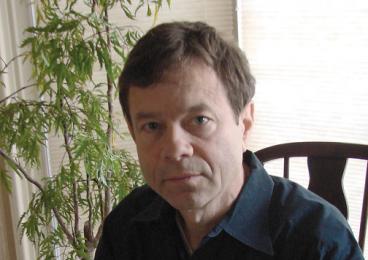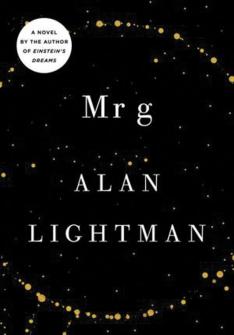
The main character of Alan Lightman ’70’s latest novel, Mr g: A Novel About the Creation (Pantheon), wakes from a nap in the Void and decides, out of boredom, to create the universe: First time, then space, and eventually countless universes, but he focuses on one universe in particular. While Nephew — as Mr g is called by his Uncle Deva and Aunt Penelope, the other celestial beings in the Void — has set everything in motion, he is not all-knowing and doesn’t anticipate all the consequences of his actions.
“Most religious people will not be comforted by the novel because it presents a view of God that probably does not accord with the views of most religions,” says Lightman, a physicist and novelist who is an adjunct professor of humanities at MIT. But his novel, he says, does present a view of God that is compatible with science, because Mr g does not intervene in the universe, though at times he wants to do so out of compassion.

Lightman, whose novel explores the intersection of theology and science as well as philosophy and morality, has had a longstanding interest in bringing together science and the humanities. (Lightman, who calls himself a “spiritual atheist,” wrote an essay for Salon in October titled “Does God exist?” that explored the meeting ground of science and religion.)
Mr g, the novel, was inspired in part by Cosmicomics, a collection of short stories by Italo Calvino about events that happen on a cosmic stage. Lightman was fascinated by the author’s use of celestial beings that view creation on a grand scale yet “care about the small details of being human.”
The God of Lightman’s novel doesn’t have any grand ideas at the beginning, sometimes learns by trial and error, and has human qualities. “My God is a more humble god than the gods portrayed in most religions,” he says. Mr g worries that if he creates intelligent beings, they will suffer. And he feels sorry for them when he observes their anguish — particularly when a young woman is faced with a moral dilemma after her mother asks her to steal food for her family. Uncle Deva and Aunt Penelope urge Mr g to give his creatures some awareness of him. And Mr g has interesting discussions about good and evil, free will, and whether the end justifies the means with a mysterious, intelligent, and somewhat sinister stranger he meets in the Void.
The novel raises longstanding theological and philosophical questions: Does an individual life have meaning? Do you need to have evil to know goodness, or ugliness to know beauty? Why is there suffering? If there is a God, does he intervene in the material world? Those kinds of questions — with no definitive answers — reflect a theme that runs through Lightman’s work: that science probes questions that are knowable, while the humanities often raise questions that we never will be able to answer.
WHAT HE’S READING NOW: Tao Te Ching, an ancient Chinese text about Buddhist philosophy.
What he likes about it: “It’s a thoughtful commentary on how to live in the world.”

